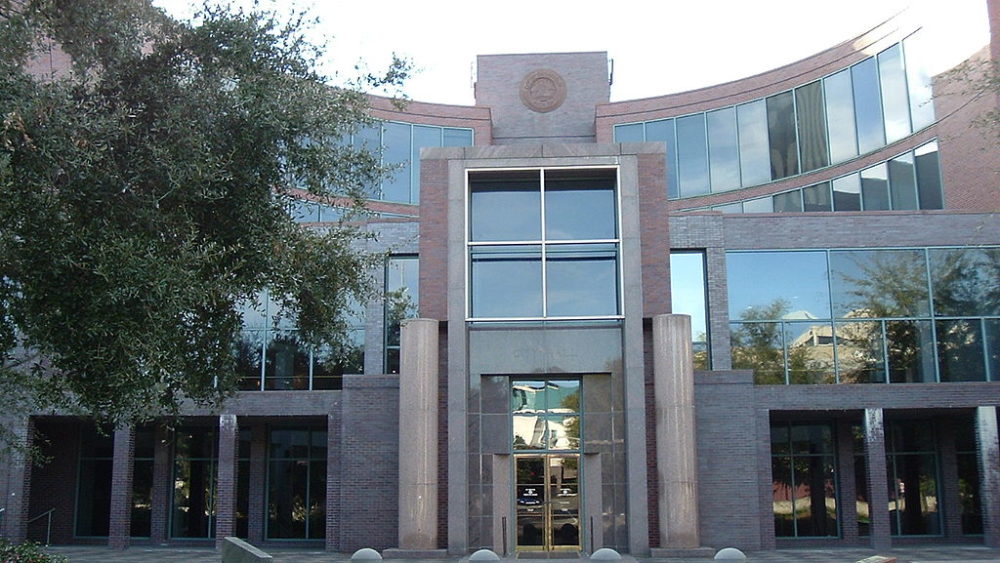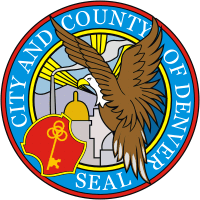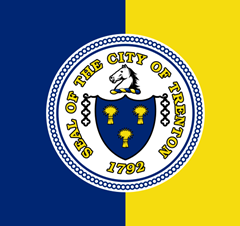June 13, 2022 •
Portland, Maine City Council Adopts Ethics Code

City Hall in Portland, ME - by: Billy Hathorn
Portland, Maine City Council adopted an ethics code that will apply to the council members. The ethics code adopts and incorporates by reference several provisions of state law, including the sections on improper influence and improper gifts to public servants […]
Portland, Maine City Council adopted an ethics code that will apply to the council members.
The ethics code adopts and incorporates by reference several provisions of state law, including the sections on improper influence and improper gifts to public servants in 17-A M.R.S.A. §§603, 605.
The code requires city officials to avoid financial conflict of interest and to refuse benefits or gifts of any kind from individuals seeking to influence the council’s decisions.
The code also prohibits council members from accepting free items from persons, firms, or corporations who have a contract with the city.
Councilors will also be prohibited from soliciting political contributions from any prospective city contractors or any individuals or entities who did business with the city in the prior 12 months.
The ethics code will take effect on June 16.
April 27, 2022 •
Vermont Legislature Passes Ethics Code

Vermont Capitol Building
The Vermont Legislature passed Senate Bill 171 and delivered it to Gov. Phil Scott today. The bill establishes a statewide ethics code covering all individuals elected or appointed to serve as public officers as well as all state employees. The […]
The Vermont Legislature passed Senate Bill 171 and delivered it to Gov. Phil Scott today.
The bill establishes a statewide ethics code covering all individuals elected or appointed to serve as public officers as well as all state employees.
The ethics code includes conflict of interest, gift, and revolving door provisions.
If signed by Scott, the ethics code will go into effect on July 1.
March 11, 2022 •
Tallahassee City Commission Rejects Major Changes to Ethics Code

Tallahassee City Hall
Following an ethics workshop discussing recommendations by the city’s Independent Ethics Board, the Tallahassee City Commission voted to move forward with introducing ordinances amending the city’s ethics code, including a ban on contingency lobbying. However, the commission declined to move […]
Following an ethics workshop discussing recommendations by the city’s Independent Ethics Board, the Tallahassee City Commission voted to move forward with introducing ordinances amending the city’s ethics code, including a ban on contingency lobbying.
However, the commission declined to move forward on other recommended changes to lobbying laws including changes to the definition of lobbyist; a lobbyist contact log requirement; and a charter amendment to give the Independent Ethics Board direct oversight over lobbyists.
June 1, 2016 •
Denver Considers Strengthening Ethics Laws
Denver Councilman Kevin Flynn is drafting legislation to amend the city ethics code. His proposal will establish a monetary gift limit. Officials or employees in a position to take action benefiting a donor would be prohibited from accepting more than […]
 Denver Councilman Kevin Flynn is drafting legislation to amend the city ethics code.
Denver Councilman Kevin Flynn is drafting legislation to amend the city ethics code.
His proposal will establish a monetary gift limit. Officials or employees in a position to take action benefiting a donor would be prohibited from accepting more than $250 from a donor in each calendar year.
Other proposed ethics changes may appear in a ballot initiative set to be finalized soon. The measure may include lower campaign contribution limits for local candidates and a ban on corporate contributions, as well as create a public financing system for local elections.
Proponents of the system argue it would provide incentive for candidates to build wider bases of funding support from small-dollar donors. The Denver Board of Ethics has been discussing changes to city ethics laws for nearly two years.
September 11, 2015 •
Sacramento, CA City Council to Vote on Ethics Proposals
On September 15, the Sacramento, California City Council will vote to determine whether to create an ethics commission with a new ethics code. An office of compliance would also be created for city employee training of local and state ethics […]
 On September 15, the Sacramento, California City Council will vote to determine whether to create an ethics commission with a new ethics code. An office of compliance would also be created for city employee training of local and state ethics laws. Additionally, if the legislation is passed, a redistricting commission would be created to draw new boundaries for City Council districts.
On September 15, the Sacramento, California City Council will vote to determine whether to create an ethics commission with a new ethics code. An office of compliance would also be created for city employee training of local and state ethics laws. Additionally, if the legislation is passed, a redistricting commission would be created to draw new boundaries for City Council districts.
Mayor Kevin Johnson said the proposals are “a breakthrough that provides an unprecedented level of accountability and transparency to Sacramento city government,” according to the Sacramento Bee.
July 31, 2015 •
Chicago City Council Passes Ethics Amendment
On July 29, City Council passed ordinance O2015-4685, amending the city ethics code. The amendment requires the Office of the Legislative Inspector General (OLIG) to deliver all evidence collected during an investigation to the Board of Ethics before the board […]
 On July 29, City Council passed ordinance O2015-4685, amending the city ethics code.
On July 29, City Council passed ordinance O2015-4685, amending the city ethics code.
The amendment requires the Office of the Legislative Inspector General (OLIG) to deliver all evidence collected during an investigation to the Board of Ethics before the board decides if city ethics rules have been violated. This would include the names and addresses of complainants and confidential testimony.
As the board will provide collected evidence to the accused, there is concern the change will have a chilling effect on potential whistleblowers, leave witnesses open to possible retaliation, and weaken the OLIG’s ability to enforce the ethics ordinance.
November 18, 2013 •
Trenton Ethics Board Establishes Code of Ethics
Trenton’s recently established ethics board passed the city’s first code of ethics last week. The long-awaited code outlines behavioral guidelines for elected officials, city employees, and representatives serving on city boards. Included are provisions regarding conflicts of interest, receipt of […]
 Trenton’s recently established ethics board passed the city’s first code of ethics last week. The long-awaited code outlines behavioral guidelines for elected officials, city employees, and representatives serving on city boards. Included are provisions regarding conflicts of interest, receipt of gifts, and financial disclosure.
Trenton’s recently established ethics board passed the city’s first code of ethics last week. The long-awaited code outlines behavioral guidelines for elected officials, city employees, and representatives serving on city boards. Included are provisions regarding conflicts of interest, receipt of gifts, and financial disclosure.
Additionally, the code permits the ethics board to investigate possible ethics violations.
The code will go to the state Department of Community Affairs before it is enacted and added to the code book.
November 26, 2012 •
Mayor Emanuel Proposes Changes to Chicago’s Lobbyist Laws
Registration and reporting requirements will be affected
 Mayor Rahm Emanuel is continuing to overhaul the city’s ethics code by introducing another ordinance based on his ethics task force’s recommendations. While this proposed ordinance deals mostly with governmental employees and elected officials, it would also bring some changes to lobbyist registration and reporting.
Mayor Rahm Emanuel is continuing to overhaul the city’s ethics code by introducing another ordinance based on his ethics task force’s recommendations. While this proposed ordinance deals mostly with governmental employees and elected officials, it would also bring some changes to lobbyist registration and reporting.
The ordinance, if approved, will change the definition of a lobbyist. Currently, volunteers, employees, officers, and directors of a not-for-profit entity are exempted from registering as a lobbyist. However, the proposed ordinance will eliminate that exemption and require those members of a not-for-profit entity who seek to influence legislative or administrative action to register as a lobbyist. The proposal does allow the ethics board to create objective criteria allowing for a reduction or a waiver of the registration fees for not-for-profits lobbyists.
Finally, under the proposal, lobbyists would be required to disclose the actual amount of compensation received from employers. Currently, the compensation needs only to be rounded to the nearest $1,000.
Photo of the Daley Plaza and Chicago City Hall by JeremyA on Wikipedia.
November 13, 2012 •
Annapolis, Maryland Mayor Introduces Ethics Code Changes
State Ethics Commission has already received and approved the draft changes.
 Mayor Joshua J. Cohen has introduced legislation to revise the city’s ethics code, based upon recommendations prepared by the City Ethics Commission. Ordinance 41-12 will grant the commission additional power to impose penalties for ethics violations and will prohibit city officials from accepting tickets to sporting events.
Mayor Joshua J. Cohen has introduced legislation to revise the city’s ethics code, based upon recommendations prepared by the City Ethics Commission. Ordinance 41-12 will grant the commission additional power to impose penalties for ethics violations and will prohibit city officials from accepting tickets to sporting events.
The proposed legislation was reviewed and approved by the State Ethics Commission in late October. Annapolis is required by a 2011 state law to revise certain provisions of its ethics code.
February 6, 2012 •
Broward County, Fla. Expected to Sue to Enforce Code of Ethics
Voters in Three Cities Undo Portions of Countywide Ethics Law
 Broward County is expected to file suit in order to ensure the countywide ethics code remains in force countywide after residents of Wilton Manors, Hillsboro Beach, and Sea Ranch Lakes voted to undo portions of it during the January 31, 2012 election. Voters were asked whether local elected officials should be subjected to state law on issues relating to their side jobs, instead of the new county code of ethics, and voters in all three cities unanimously voted in favor.
Broward County is expected to file suit in order to ensure the countywide ethics code remains in force countywide after residents of Wilton Manors, Hillsboro Beach, and Sea Ranch Lakes voted to undo portions of it during the January 31, 2012 election. Voters were asked whether local elected officials should be subjected to state law on issues relating to their side jobs, instead of the new county code of ethics, and voters in all three cities unanimously voted in favor.
Broward County Mayor John Rodstrom and Broward County Commissioners have all expressed their belief that the language used on the ballot was deceiving, as no mention of lobbying or the new county code of ethics, extended to all cities in Broward County on January 2, 2012, was contained in the language of the ballot questions.
The county is expected to pursue one of the following legal paths: suing on the ballot language as deceptive or acquiring a ruling concerning Broward County’s authority over the three cities in regards to the code of ethics.
December 30, 2011 •
Pembroke Pines City Commission Approves Lobbyist Registration Ordinance
Lobbyists to Begin Registering January 2, 2012
 The city of Pembroke Pines, Florida passed a lobbyist registration ordinance at the most recent city commission meeting. The ordinance requires lobbyists to register with the city clerk prior to engaging in lobbying activities.
The city of Pembroke Pines, Florida passed a lobbyist registration ordinance at the most recent city commission meeting. The ordinance requires lobbyists to register with the city clerk prior to engaging in lobbying activities.
Registration will be required annually and lobbyists must pay a registration fee of $50. Lobbyists will also be required to complete a contact log to document meetings with members of the city commission or members of other decision-making bodies under the jurisdiction of the city commission.
The ordinance was passed in response to Broward County’s new code of ethics, which extends the county’s code of ethics to all municipalities within the county. Lobbyists will be required to begin registering on January 2, 2012.
Map of Florida by Bastique on Wikipedia.
September 2, 2010 •
Proposed Cuyahoga County Ethics Code to Be Debated
A draft ethics code for the new Cuyahoga County government will be the subject of a public meeting later this month.
 The proposed Cuyahoga County ethics code is the product of a review conducted by a working group of volunteers who reviewed the ethics practices of 13 similar counties. The proposed code includes provisions for lobbyist registration and reporting, campaign finance disclosure, and “pay-to-play” provisions for public contracts.
The proposed Cuyahoga County ethics code is the product of a review conducted by a working group of volunteers who reviewed the ethics practices of 13 similar counties. The proposed code includes provisions for lobbyist registration and reporting, campaign finance disclosure, and “pay-to-play” provisions for public contracts.
The code calls for a new five person entity called the Cuyahoga County Ethics Board which will oversee ethics education and enforcement as well as a County Ethics Officer who would be empowered to render advisory opinions, process and initiate ethics complaints, and conduct investigations.
Finally, the new code provides for whistleblower protection for county employees who report suspected illegal or unethical conduct.
State and Federal Communications, Inc. provides research and consulting services for government relations professionals on lobbying laws, procurement lobbying laws, political contribution laws in the United States and Canada. Learn more by visiting stateandfed.com.

